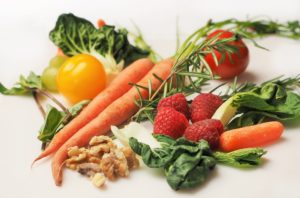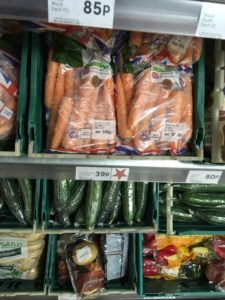Tips for Eating Healthy on a Budget While Abroad



Here are some tips on eating healthy on a budget while abroad. It might be quite difficult to live in London and not spend thousands of pounds on food alone – the money you could otherwise spend on city exploration and traveling (trust me, I spent around 200 dollars on groceries in my first week). But it is also important to stay healthy by having a good wholesome diet, which most people find difficult to do with a limited budget. In this article, I would like to share some tips on how you can save your money on food while enjoying your semester abroad.
Make a plan
As most of you will probably use debit/credit cards to make purchases, it is really easy to overspend since you do not really see your wallet getting smaller. One way you can limit how much you spend is making a budget plan indicating exactly how much you want to spend each week. If you think you might spend more this week, cut your expenses for the following week so that you still stay on track. Another thing that makes a big difference is having a shopping list when you go into the store and sticking to it.Approach making this list in a responsible manner thinking about your body’s dietary needs, emphasizing certain products like vegetables and fruits.
Try to shop less often

Yet another trick to limit your expenses is to shop once a week. First few days in London I found myself going to a local Co-op to get little snacks pretty much every day. When I checked my transactions history those little trips wound up costing me much more than I initially expected. Resist the temptation of going to the store more often than twice a week. From personal experience, I can tell that once a week is a sweet spot. If you choose to shop even less often, with products like dairy and meat you risk letting it get spoiled.
Save on little things

While snacking is a great way to replenish your energy between meals, it is important to remember that they are not meant to and should not replace whole meals in your diet. And as my experience suggests, they might collectively cost you more than ingredients for a good wholesome meal, while not providing you with the same nutritional benefits.Another thing that you can save money on is plastic bags. If you shop big, you often wind up buying a lot of plastic bags (no, plastic grocery bags are not free there). However, not only are they bad for the environment, but they also cost you precious pounds. So I recommend that you bring your backpack or reuse plastic bags that you already have when you go shopping. Yet another thing that you can cut expenses on is fast food. While it might be really tempting to get a deep fried chicken in the local KFC, not only it is bad for you, but you can prepare a healthy, wholesome meal for the same money.
Learn how to cook on a budget

There is a misconception that healthy food costs money. However, there are dishes that are quite healthy and do not require that you buy expensive ingredients. For meat-lovers, I recommend chicken as the cheapest and healthiest option. Not only is it a great source of healthy proteins, but chicken breast marinated in a worcestershire sauce with the spices of your choice cooked on a skillet is an affordable recipe that is also easy to follow. For carbs,I personally prefer rice, oats and pasta to other products. While rice can be cooked in many different ways, the easiest and most healthy one is simply boiling it. For fibers, I would personally get broccoli, carrots and beans (usually the darker the color, the more fiber a vegetable contains).Remember to also include vitamins-rich products like soy milk, apples and oranges. This is by no means an exhaustive list of cheap food products, but now that you know that they exist, you can explore and find budget recipes that you enjoy.
Find cheaper supermarkets
While usually there would be some food stores in your school’s vicinity, they might not be the cheapest options. For UK, actual research by Good Housekeeping found Lidl and Aldi to offer lowest prices. Based on my experience, it is true, although Lidl is slightly cheaper when it comes to certain products. To give you some idea on their prices: you can get 6 medium eggs for 80p (1.05$). 250 grams of microwave rice will cost you 45p (0.59$). They sell chicken breast fillets at 5.41 per kg (7.13$). 1 kg of porridge oats will cost you only 85p per kg (1.11$). 1 liter of skim milk is sold at 48p (0.63$).
Bakdaulet B. | Economics major | Kenyon College | Queen Mary, University of London Partnership | 2019 | IFSA International Correspondent